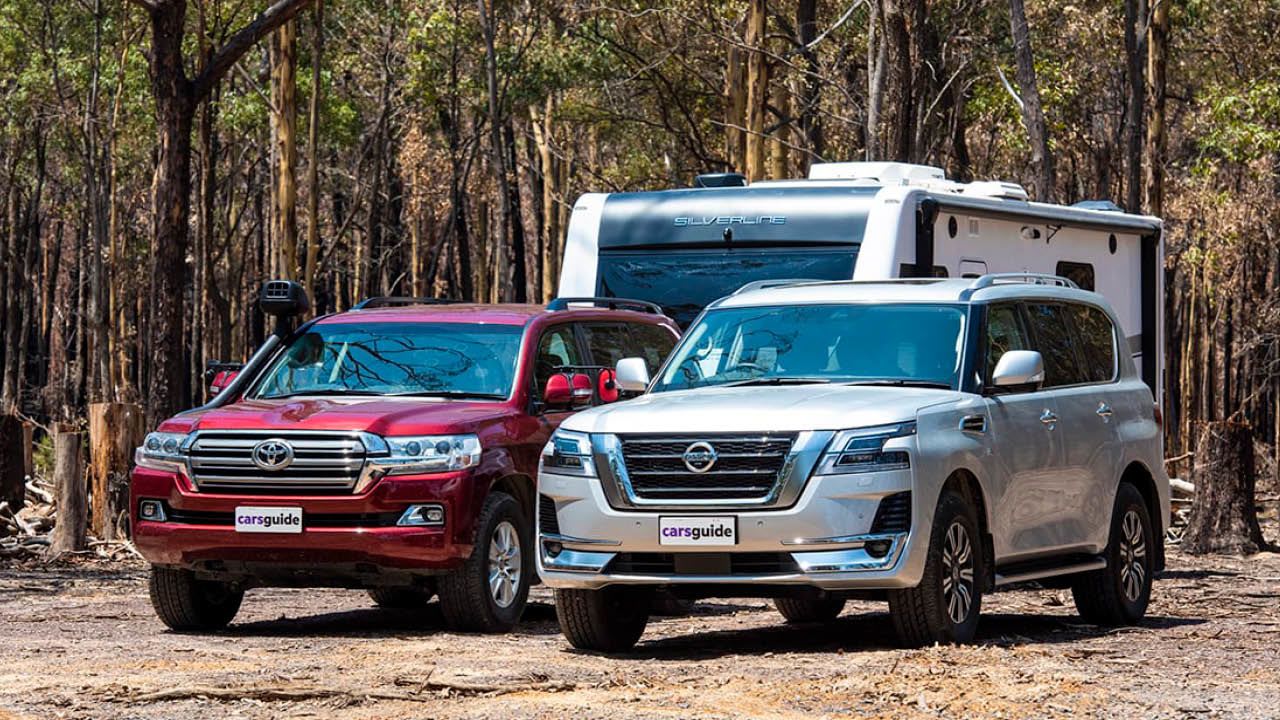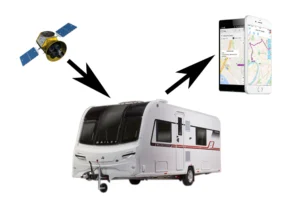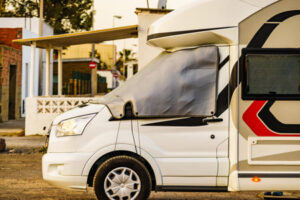Introduction to Caravan Registration
After purchasing a new caravan, it’s not just about hitting the road immediately. Ensuring that the caravan is safe, government-approved, and road-legal is of paramount importance. This is because caravans, like any other vehicle, are subject to specific regulations and laws that ensure the safety of both the owner and other road users. Compliance with these laws isn’t just a formality; it’s a crucial aspect of caravan ownership. Every caravan owner must be aware of these regulations to avoid legal complications and to ensure a smooth and safe journey.
Moreover, while caravans might not be registered in the traditional sense like cars, they have their unique set of requirements. These requirements are not just about paperwork but also about ensuring that the caravan meets specific safety and quality standards. It’s essential to understand these nuances to ensure that your caravan is not just legally compliant but also safe for use.
Traditional Caravan Registration
Interestingly, caravans do not follow the conventional registration process that most road vehicles, like cars, undergo. While cars require a detailed registration process involving submission of forms to the appropriate authorities, caravans have a different pathway. This distinction arises because caravans have unique needs and functionalities compared to regular vehicles.
However, this doesn’t mean that caravans are entirely free from any registration. There’s a method to register the ownership of a caravan, which can be particularly beneficial in situations like theft. This registration process ensures that the caravan can be traced back to its rightful owner, providing an added layer of security and peace of mind to caravan owners.
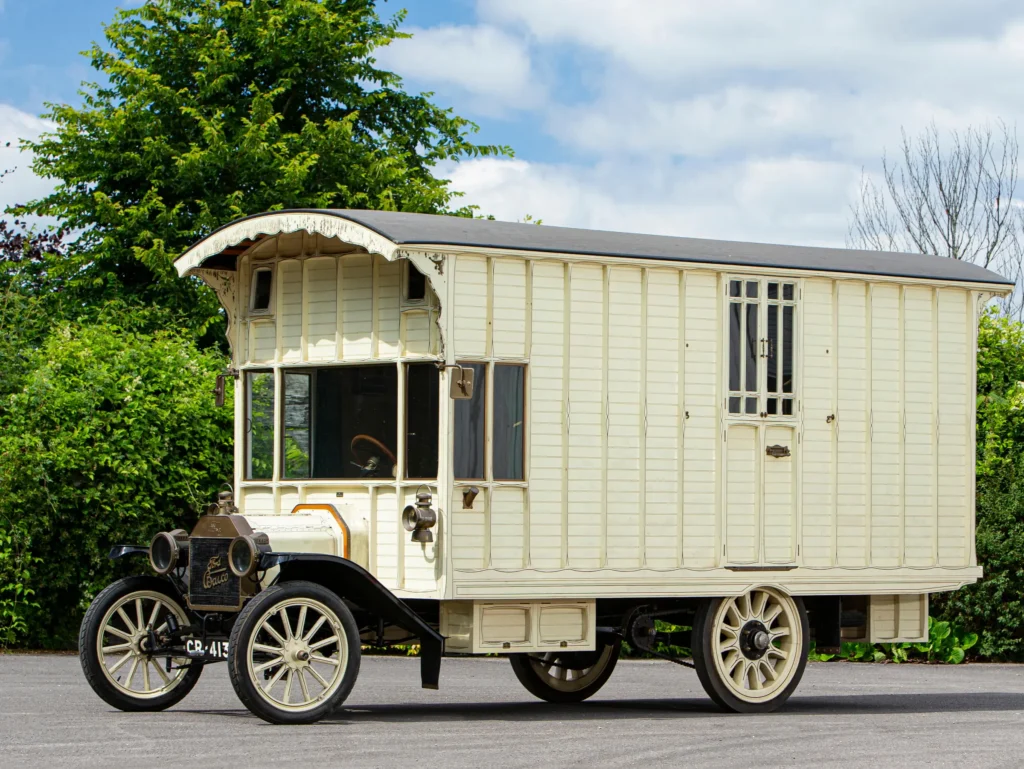
Registering Caravan Ownership
Registering the ownership of a caravan is not just about paperwork; it’s about security. While caravans aren’t registered in the same way cars are, there’s a system in place that allows owners to register their ownership. This system can prove invaluable, especially in unfortunate events like theft. By having a registered ownership, tracking and recovering a stolen caravan becomes significantly more straightforward.
The criteria for registering a caravan, however, can vary. Factors such as the type of caravan, its ATM (Aggregate Trailer Mass, which is the total weight of the caravan including its load), and its intended use can influence the registration process. It’s essential for caravan owners to be aware of these criteria to ensure proper registration and avoid potential legal complications.
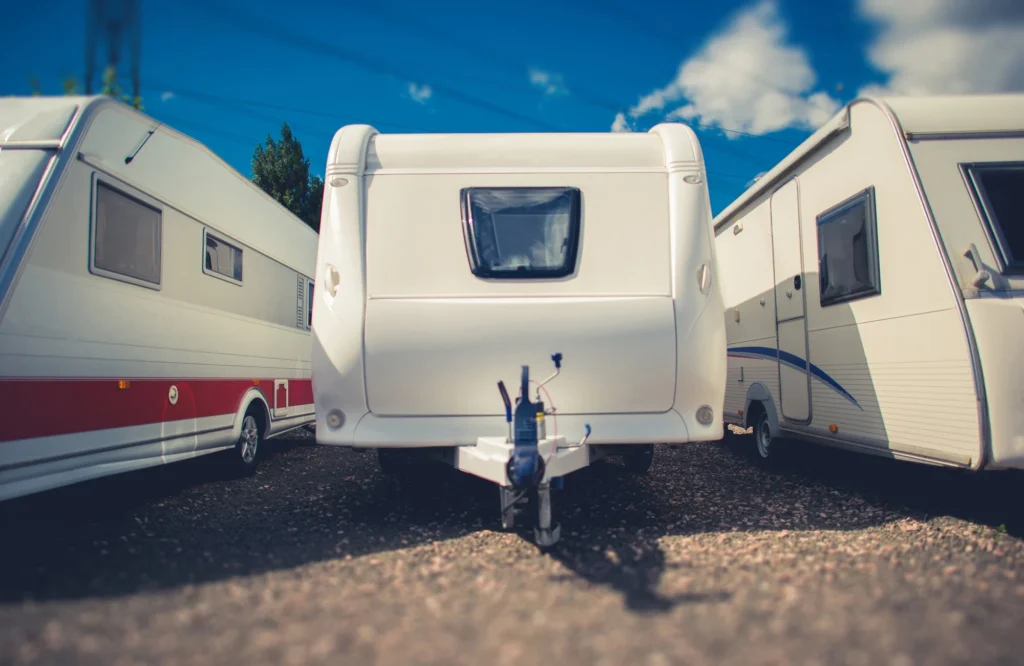
Central Registration and Identification Scheme (CRiS)
For those in the UK, the Central Registration and Identification Scheme, commonly known as CRiS, plays a pivotal role in caravan ownership. Established in 1992, CRiS serves as the national registry for touring caravan owners. But why is CRiS so essential? Well, it offers a myriad of benefits to caravan owners. From conducting checks on caravans you’re considering purchasing to electronic tags that aid in the recovery of stolen caravans (even if thieves have removed the identification number), CRiS provides a comprehensive safety net for caravan owners.
Furthermore, with an alarming estimate of 4,000 caravans stolen annually, CRiS’s role becomes even more crucial. Manufacturers register all new caravans with CRiS, making it a central hub for caravan identification and tracking, ensuring added security for owners.
DVLA Registration for Caravans
When it comes to the DVLA (Driver and Vehicle Licensing Agency), many might assume that caravans need to be registered with them, given that most vehicles on the road require DVLA registration. However, for caravans, there’s no such legal obligation. This exemption from DVLA registration might seem like a relief to many, but it also brings forth other concerns, especially regarding the future security of the caravan.
While the absence of DVLA documentation might seem like less paperwork, it’s essential to understand the implications of this. Without DVLA registration, certain security measures available to other vehicles might not be accessible to caravans. Hence, while it’s not a legal requirement, caravan owners should be aware of the pros and cons of not having DVLA registration.
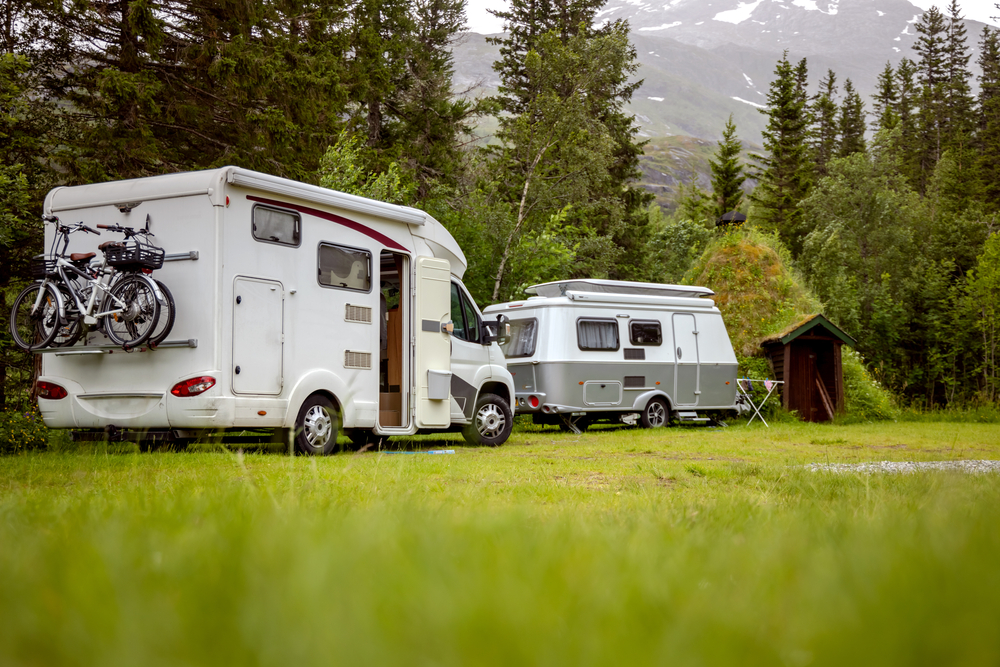
MOT Requirement for Caravans
Unlike cars and other road vehicles, caravans are not legally mandated to undergo an MOT (Ministry of Transport) test. The MOT test is a safety check that ensures vehicles meet road safety and environmental standards. However, the absence of this requirement for caravans doesn’t absolve caravan owners of their responsibilities. They must ensure that their caravan is always safe to tow on the road. This encompasses the caravan’s overall roadworthiness, the legality of its tires, and the proper functioning of essential components like braking lights, indicators, and other equipment.
While the law might not mandate an MOT for caravans, many caravan owners see the value in conducting an annual safety check. This proactive approach ensures that they are meeting all safety requirements. Additionally, it’s a way to check that the gas and electrical systems are in optimal condition. Incorporating this into their annual caravan maintenance budget is a small price to pay for peace of mind and safety.
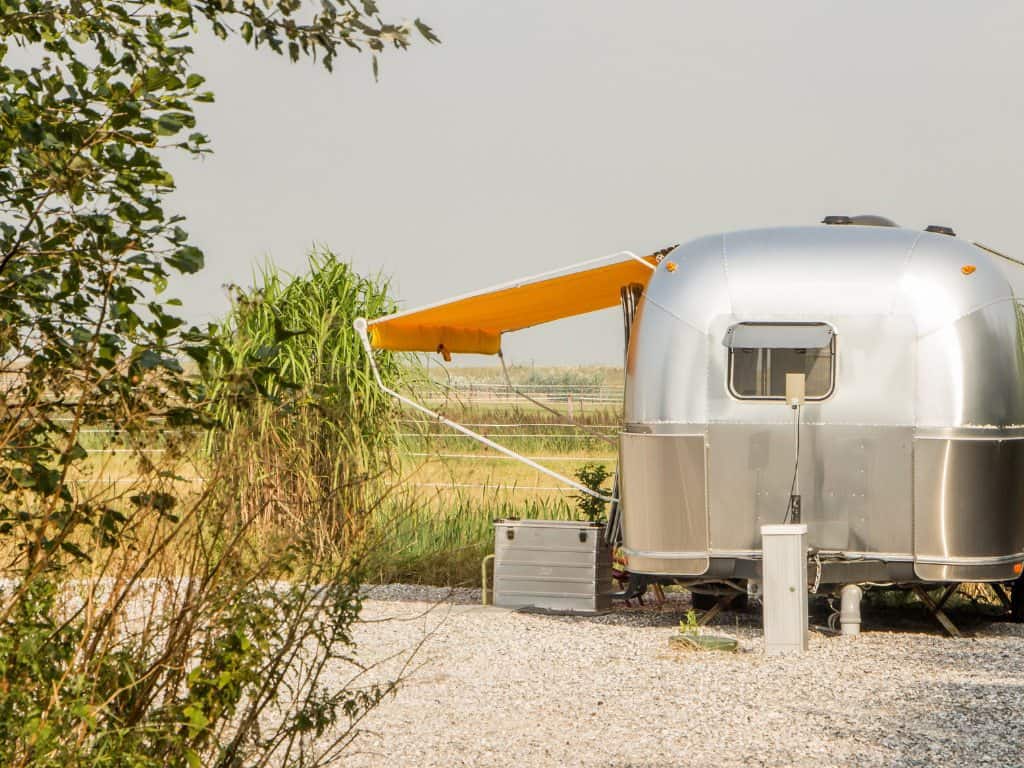
Planning Permission for Caravans
Parking a caravan might seem straightforward, but there are legal nuances to consider. Generally, you don’t need planning permission to park a caravan on your property. However, if you decide to live in your caravan full-time, the rules change, and you’ll likely need planning permission. These regulations are not arbitrary but are in place to ensure that residential areas maintain a certain standard and that there’s no undue strain on local resources.
The need for planning permission largely depends on local government rules. Different municipalities might have varying regulations, and it’s crucial for caravan owners or those considering living in one to familiarize themselves with these. Being informed can save one from potential legal complications and fines down the road.
Caravan Insurance
While it’s not a legal requirement, having caravan insurance is highly advisable. Why? Because around 4,000 caravans are reported stolen each year. Beyond theft, there’s always the risk of damage, especially when the caravan is in transit. The most common type of accident involving caravans occurs during towing, emphasizing the importance of insurance.
The law might not mandate specific caravan insurance, but it’s essential to understand what your current insurance covers. Often, regular car insurance will only offer third-party coverage when towing a caravan. This means that any damage to another person or property will be covered, but any harm to your caravan won’t be. Given this, many responsible caravan owners opt for additional coverage to ensure they’re not left footing hefty repair bills.
Road Tax for Caravans
Owning a vehicle often comes with various associated costs, and road tax is one of them. However, caravans enjoy a unique position in this regard. They are not subject to the same road tax obligations as cars or trucks. If your caravan falls within the weight limit of 3,500kg, you’re exempt from paying any road tax. This exemption applies primarily to touring caravans, which are designed to be towed by another vehicle.
However, it’s essential to note that not all caravans or trailers enjoy this exemption. Motorhomes or caravans that exceed the specified weight limits might have different road tax rules. These rules can vary based on the size and type of the vehicle. Additionally, if you plan to park your caravan on a public road, it’s wise to check with local authorities for any restrictions or regulations.
Summary
Caravans offer a unique blend of freedom and comfort, allowing owners to explore without leaving the comforts of home behind. However, with this freedom comes responsibility. While caravans don’t need to be registered in the traditional sense, there are still several legal and safety considerations to keep in mind. From the importance of CRiS registration in the UK to the nuances of insurance and road tax, being informed is crucial.
Moreover, while certain legal requirements like MOT and DVLA registration might not apply to caravans, owners should still prioritize safety and security. Whether it’s conducting annual safety checks or opting for comprehensive insurance, these proactive steps ensure a smooth and enjoyable caravan experience. After all, being on the road should be about adventure and relaxation, not legal worries.
Conclusion
Owning a caravan offers a unique blend of adventure and homey comfort, allowing enthusiasts to traverse landscapes without sacrificing the conveniences of home. However, this nomadic lifestyle comes with its set of responsibilities and legalities. From understanding the nuances of caravan registration to recognizing the importance of insurance, every caravan owner must be well-informed. While certain mandates like the traditional vehicle registration and MOT might not directly apply, there are other crucial aspects like CRiS registration, planning permissions, and road tax considerations that cannot be overlooked. Moreover, even in areas where the law doesn’t dictate a strict requirement, such as in the case of insurance, it’s imperative for owners to recognize the inherent risks and take proactive measures. After all, the essence of caravan life is to enjoy the journey, and being well-prepared ensures that the ride is smooth, safe, and free from unforeseen hurdles. As the caravan culture continues to flourish, it’s paramount that enthusiasts are not just geared up for the adventure but are also equipped with the knowledge to navigate the legal and safety terrains of caravan ownership.
